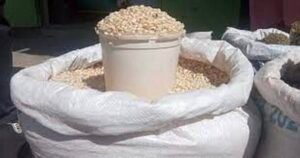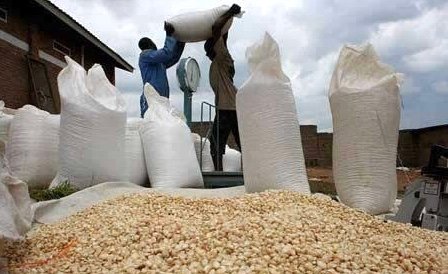Malawi has formally activated restrictions on maize exports in an effort to preserve domestic food supplies after the government projected a major national shortfall and warned that roughly 4 million people could face hunger before the next harvest in March 2026.
The Ministry of Trade confirmed on Thursday that it is enforcing controls under Malawi’s 2018 Import and Export Control Act, which allows authorities to block the foreign sale of essential grains. The government says this is necessary to stabilise prices and protect households in a country where maize accounts for the bulk of daily caloric intake.
According to estimates from the U.S.-based Famine Early Warning Systems Network (FEWS NET), Malawi produced about 2.9 million metric tonnes of maize in the current season — well below the 3.7 million metric tonnes needed to adequately feed the population. Erratic rainfall patterns linked to El Niño, reduced access to fertiliser and rising input costs have contributed to this year’s poor harvest.

Food prices have also surged, with the Integrated Food Security Phase Classification (IPC) reporting that maize prices have climbed by at least 50% compared to last year. This has further strained households already dealing with declining purchasing power and high inflation.
To bridge the shortfall, Malawi has ordered 200,000 tonnes of maize from neighbouring Zambia. The World Food Programme (WFP) meanwhile confirmed it will begin emergency food deliveries in the hardest-hit districts this month, but says it is still facing a $69 million funding gap to support its planned operations.
Humanitarian agencies warn that without additional food imports, more external support, and stable rainfall in the coming season, Malawi could see one of its worst hunger periods in over a decade.
UN Human Rights Council Sets Emergency Meeting on Sudan After Alleged Mass Killings in al-Fashir
Source:Africa Publicity








